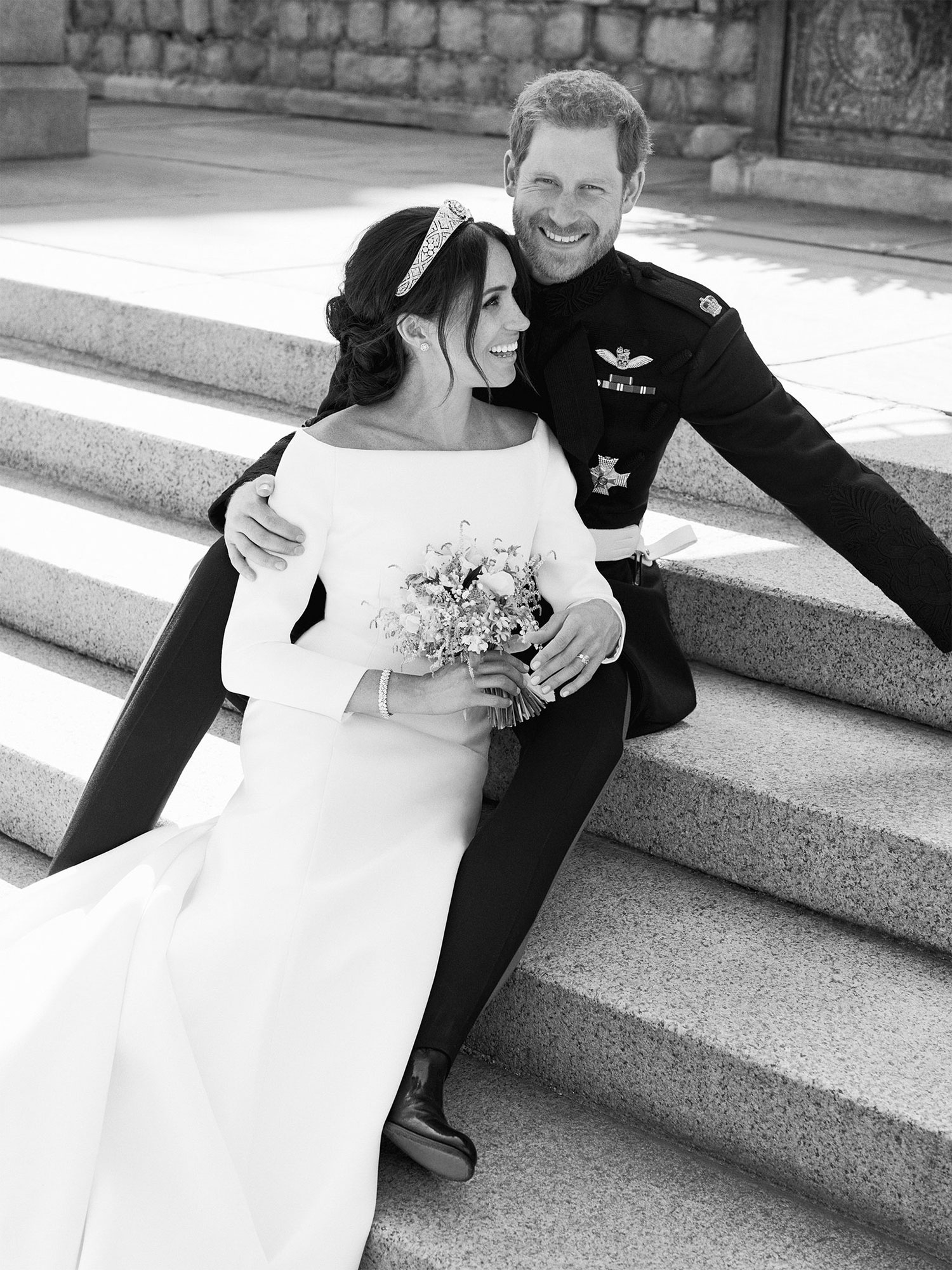For an institution so white and a country known for its serious racial issues, the marriage of a "commoner" of mixed racial heritage to the sixth in line to the British throne is a gesture of profound significance. One that cannot not be ignored.
As the set date for the marriage ceremony between Prince Harry and Meghan Markle (both of whom are now addressed as Duke & Duchess of Sussex) drew close, speculations flew in from all over the world. No surprise, being that the conservative royalist institution is now somewhat celebrity thanks to younger generation royals like Prince William and more particularly, his brother, Prince Harry. Both have stealthily and successfully tilted towards the nature of their mother, Princess Diana who was known for her open and informal style which endeared her to many, shunning the conservative nature of the monarchy.
While happenings that involve the British monarchy instantly capture the interest of its enthusiasts worldwide, this wedding can be dubbed the most talked royal wedding as yet, as interest was peaked resulting from the fact that Markle is both white and African American. One question served as a common denominator to all the questions being asked: Will Meghan Markle's marriage into the institution actually affect some change?
The First Black Royal, Queen Charlotte of Mecklenburg-Strelitz. || Image c/o FINE ART IMAGES/HERITAGE IMAGES/GETTY IMAGES
If the nuptial ceremony between Prince Harry and Meghan Markle is anything to go by, then the 19th of May, 2018 marked the formal introduction of blackness to the the monarchy. Formal only because Meghan is not the first black or bi-racial woman to join the royal family. Yes, shocker. Queen Charlotte of Mecklenburg-Strelitz, a descendant of Margarita de Castro y Sousa, a black branch of the Portuguese Royal House and the wife of King George III, was actually of mixed race and the actual first queen of black descent.
Thanks to the Duke and Duchess of Sussex, the world witnessed a royal wedding like never before with symbolism that spoke to Meghan's mixed-race heritage, reigniting the hopes of blacks and bi-racials all over the world, particularly in Britain.
First came Reverend Michael Curry with a 14-minute long sermon on “redemptive power of love," evoking MLK and the misery of slavery. He shared how black slaves in the Antebellum South explained the power of love through an old African-American spiritual, “There is a Balm In Gilead”. Considering the fact that Curry is famed for his open support of gay marriages and addressing social justice issues, choosing him as the presiding bishop, was a pretty progressive move on the newlyweds' part. While the profound sermon, which quickly spread like wildfire, was a walk in the park for normal black churchgoers, it was evident that many of the British royal family and aristocracy in attendance had ever had an experience like that before.
While the black community thanks Bishop Curry for using his message to highlight issues of poverty, oppression, racism, the real star of the occasion remains the new Duchess of Sussex. For having the courage to bring in the first presiding Bishop at the Episcopal church, taking pride in one-half of her heritage and letting Curry be an uplifting mouthpiece for Black Americans and other racial minorities.
Enter Karen Gibson and the Kingdom Choir. A UK-based group of powerhouse vocalists, many of whom were women donning natural hair and locs with their Sunday best, offering a stirring rendition of Stand By Me, a song written by American singer-songwriter Ben E. King after hearing a spiritual co-written by soul singer Sam Cooke. A notable choice in tune because it is a politically motivated anthem that gained popularity in America during the civil rights movement becoming a soundtrack to protest and unity in the face of racial injustice.
Let's not forget teen music star, Sheku Kanneh-Mason. Backed by an orchestra, the 19-year-old gracefully manned the cello as he flawlessly performed Franz Schubert's Ave Maria, Gabriel Fauré's Après un rêve and Maria Theresia von Paradis' Sicilienne. The young cellist, who hails from Nottingham in England's midlands region, was the first black musician to win the BBC Young Musician of the Year award in 2016. The current student of the Royal Academy of Music in London had already released chart-topping songs in the UK before he was tapped to perform for the royal ceremony. Talk about black excellence!
Also, Markle's past life as an actress was not blotted out. Black celebs like media mogul Oprah Winfrey, tennis royalty Serena Williams, movie stars Idris Elba and Gina Torres invaded St George's Chapel, Windsor Castle, bringing even more blackness to the occasion.
If you're used to being a part of the majority, then none of what went down at the royal wedding will seem symbolic to you. But for those who relate to Markle’s situation—a person of color entering and accepting perhaps one of the whitest and most exclusive of spaces in the world, where there is a lack of visible diversity—they speak to an everyday sense of being the first, of introducing a heritage that promises to change and set a new tone.
Indeed, there was so much hullabaloo as to what part of Markle's heritage will be represented at her wedding (the white or the black half, maybe both) and Markle's choice was as clear as her intended message. By choosing to have an unapologetically black wedding, the Duchess of Sussex stealthily re-emphasized her passion for activism and change making by way of a black bishop, black choir, black cellist and the inclusion of black celebrities. If nothing else, a new era has dawned for people of color, particularly, black Britons. If truly this is how Markle intends to go on, then the royal table just might start to see more black seats.
















